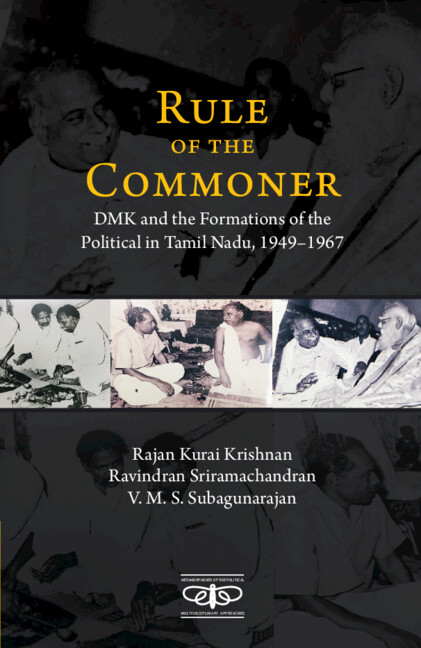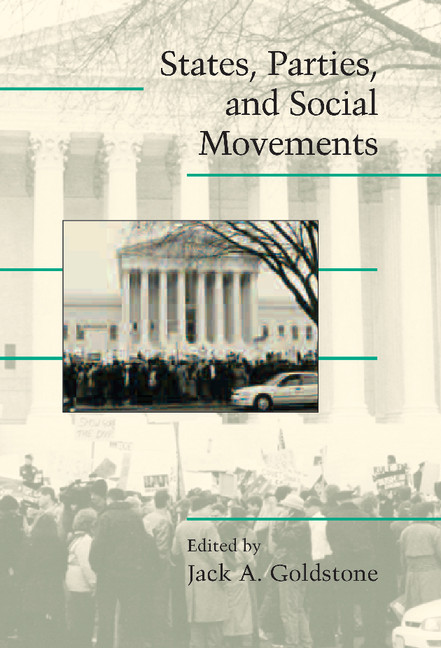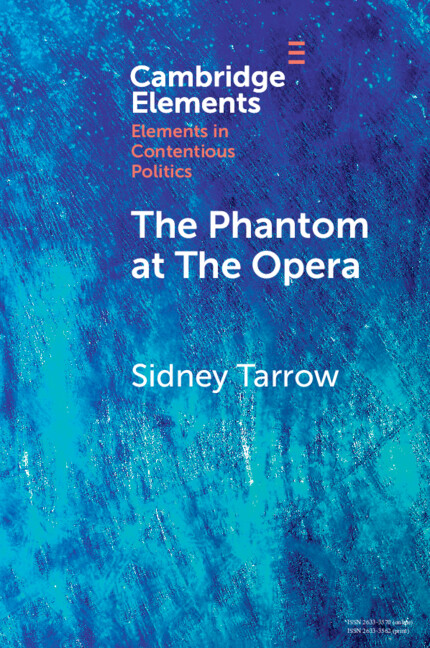Rule of the Commoner
The Dravida Munnetra Kazhagam (DMK) has been singular in heralding and establishing a firm regional polity among the Indian states after the Indian Union was inaugurated as a republic. Academic scholarship has often treated the DMK as a Tamil nationalist or ethno-nationalist formation without conceptual clarity or critical insight. Rule of the Commoner demonstrates with persuasive evidence that the DMK appealed to a federalist and not nationalist imagination. The DMK's combining of the non-Brahmin Dravidian identity and allegiance to Tamil language led to a counter hegemonic formation of the plebes and left populism. Drawing on Ernesto Laclau, the book argues that the DMK achieved the construction of a people as Dravidian-Tamil, with Tamil being the empty signifier of the social whole, Brahmin vs. non-Brahmin divide functioning as the internal frontier leading to the formations of the political. It elaborates the conceptual scheme under the three rubrics of Ideation, Imagination and Mobilization.
- Disambiguates the DMK as a populist party that achieved the construction of Dravidian-Tamil people and offers a fresh conceptual scheme to understand the party
- Conceptualizes the history of the formation of the political as specific to Tamil Nadu
- Brings out the progressive nature of non-Brahmin politics often misunderstood as casteist and parochial
Reviews & endorsements
'In this original and important study of a major leader in the Dravidian politics of south India in the middle of the twentieth century, the authors make a vital distinction between the rhetorics of ‘people’ and ‘nation’, to show that far from being a mere example of regional chauvinism or separatism, Annadurai’s vision was a genuine alternative to the reigning forms of nationalism in Nehru’s India.' Arjun Appadurai, author of Banking on Words: The Failure of Language in the Age of Derivative Finance
'This is the most comprehensive analytical account of the Dravidian movement in English. In the course of a gripping narrative, the authors draw an intricate picture of the complex relations between Periyar, Annadurai, and Karunanidhi as well as the split between the DMK and AIADMK. We have here a powerfully told story of how the DMK shaped the Tamil people into a political entity.' Partha Chatterjee, author of The Truths and Lies of Nationalism as Narrated by Charvak
'With infinite care and unfaltering speculative ambition, Rule of the Commoner rises from the sea like Proteus: cultural critique but also political theory, political sociology but also electoral analysis, the book inaugurates a new and powerful idiom, a new sapience in political philosophy. Plotted against the double horizon of immanence and transcendence, this is an allegory of how the infusion of the social into the political relentlessly individualizes and singularizes the mass, but always from within a warm ethical fold through which glints the sunny humanity of the DMK in its world-historical moment of mass mobilization.' Milind Wakankar, author of Subalternity and Religion: The Prehistory of Dalit Empowerment in South Asia
Product details
June 2022Adobe eBook Reader
9781009276702
0 pages
This ISBN is for an eBook version which is distributed on our behalf by a third party.
Table of Contents
- List of Tables
- List of Maps
- Acknowledgments
- Note on Transliteration
- Illustrations
- Dedication
- Introduction: Two Scenes of Departure
- Part I. Ideation:
- 1. Construction of 'Dravidian –Tamil' People
- 2. The Uses of Language
- 3. Human Immanence
- 4. Left Populism
- Part II. Imagination:
- 5. The Play is the Thing
- 6. Critical Hermeneutics
- 7. Counter Narratives
- 8. Power of Fiction
- Part III. Mobilization:
- 9. The Grassroots
- 10. The Waves
- 11. The Eruption
- 12. The Climb
- Conclusion: Formations of the Political
- Bibliography
- Index.







